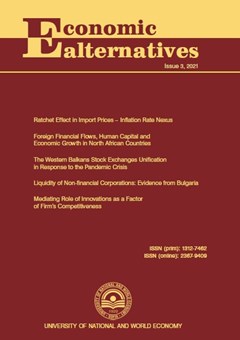Ottoman Institutions and Legal Regulations in 19th Century Bulgarian Economy; A Review Based on Institutional Economics
Authors: Mustafa Can Guripek, Sevket Kamil Akar
Abstract
In the 19th century, developments took place in many areas around the world. The industrialization process has accelerated in the world, production scales have increased, and the economic integration process has started. With the globalization of trade, the boundaries became less visible, and entrepreneurs could trade freely in different parts of the world. In this article, the extent to which the economic activities on the Bulgarian territory could be integrated into the world trade in the 19th century, the political and financial institutions of the Ottoman Empire, and the legal arrangements that affected the welfare of the Bulgarian people will be discussed. In making this discussion, the basis of institutional economic thought will be examined, and the effects of the institutions of the Ottoman Empire on the economic structure of Bulgaria will be reviewed. Did the Ottoman Empire, expressed in the terms of institutional economics, constitute inclusive institutions or exploitative institutions in economic activities on the territory of Bulgaria? This discussion will be more explanatory under four main headings. These are; traditional institutions, tax regulations, financial institutions, and legal regulations. Thus, the effects of the Ottoman Empire on the economic structure in the territory of Bulgaria will become more pronounced.

